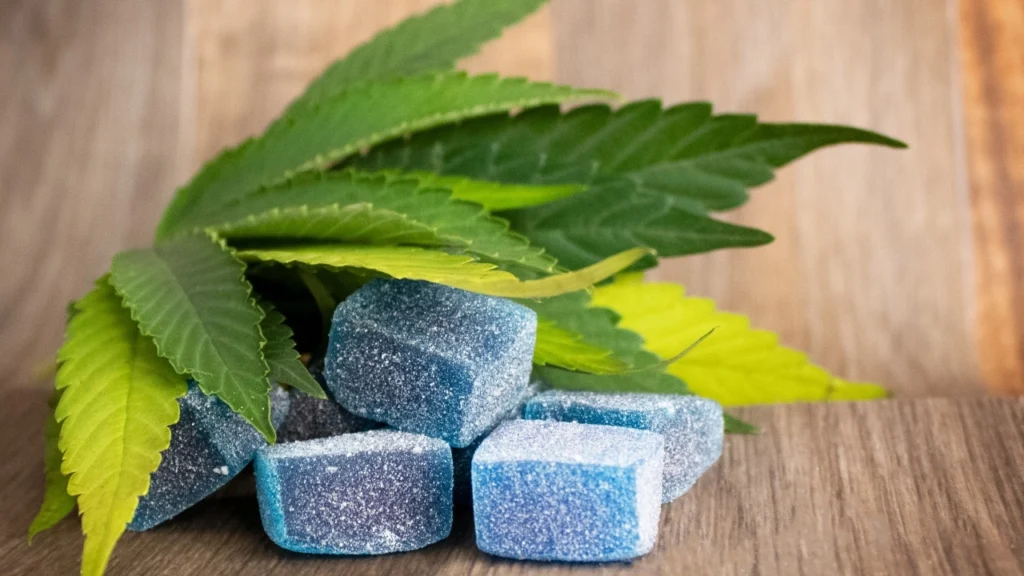A little over three months after it was signed by South Dakota Governor Kristi Noem, legislation banning the production, distribution and possession of delta-8 and delta-10 THC is now in effect.

Gummies made with delta-8 THC.
House Bill 1125 into law was approved by the state’s full Senate, 31 to 1, and it passed the House unanimously, 69 to 0. The legislation explicitly prohibits the production, distribution or possession of delta-8 and delta-10 THC, derived from legal hemp. The measure states that no person or entity may:
- Chemically modify or convert industrial hemp as defined in § 38-35-1, or engage in any process that converts cannabidiol, into delta-8 tetrahydrocannabinol, delta-9 tetrahydrocannabinol, delta-10 tetrahydrocannabinol, or any other tetrahydrocannabinol isomer, analog, or derivative; or
- Sell or distribute industrial hemp or an industrial hemp product that contains chemically derived cannabinoids or cannabinoids created by chemically modifying or converting a hemp extract.
- Possess any of the above-mentioned substances.
A violation of this section would be a Class 1 misdemeanor, punishable by up to three years in prison.
Delta-8 THC is derived from hemp, which was made legal nationwide in a 2018 farm bill. Delta-8 THC interacts with the body in a way similar to marijuana-derived delta-9 THC, despite the latter being illegal for recreational use in South Dakota. This has led some lawmakers to consider it a loophole, allowing consumers to legally get a marijuana-like high.
The full text of House Bill 1125, which took effect today at midnight, can be found by clicking here.
South Dakota is the 18th state to ban Delta-8 THC.
On November 5 South Dakota voters will have the opportunity to legalize recreational marijuana via Measure 29.








